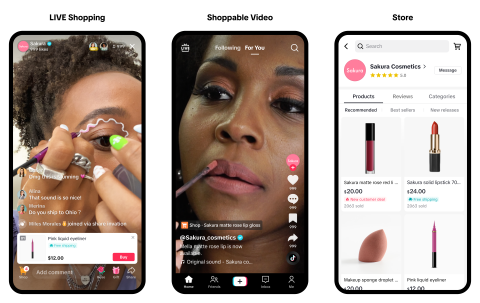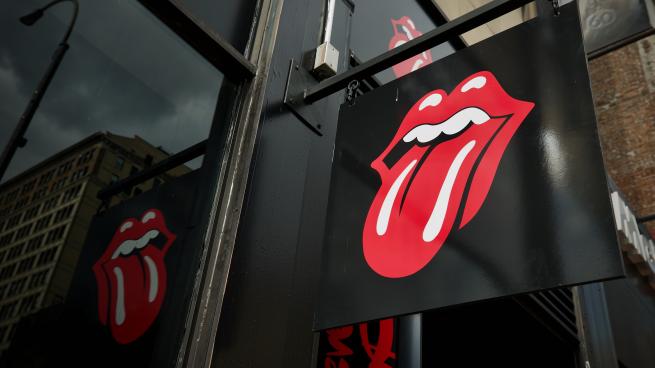How TikTok is shaking up e-commerce

TikTok now serves as a full-fledged U.S. e-commerce platform, and digital retail will never be quite the same.
Speculation that TikTok, which has been the most downloaded app in the U.S. since late 2018, would take advantage of its vast user base and ability to influence (if not set) popular social trends by venturing into American e-commerce has been going on for some time. The company confirmed those suspicions with the recent release of its TikTok Shop e-commerce offering here.
TikTok has already been serving as an online retail platform in countries including the U.K., Indonesia, Malaysia, the Philippines, Singapore, and Thailand; and the U.S. market is a logical next step for the app. The company has been piloting TikTok Shop with select U.S. retailers since November 2022, but widespread rollout should be a game-changer for domestic e-commerce.
Following are three ways TikTok is already shaking up e-commerce in the U.S.
Video killed the storefront?
TikTok has already become an important player in U.S. e-commerce even though it only just gained the capability to facilitate digital transactions on its platform here. According to the Q1 2023 Consumer Trends Report from e-commerce platform Jungle Scout, 43% of surveyed Gen Z consumers start their online product searches on TikTok, a higher number than those who start on Google.
And in a blog post announcing its entry to U.S. e-commerce, the company said videos with hashtags like #TikTokMadeMeBuyIt had already turned it into a significant purchase influencer, especially among younger shoppers (is there a better kind?). So TikTok has already been an active promoter, along with other video-focused social networks like YouTube and Instagram, of turning videos into e-commerce shops.
Now, with its focus on directly selling to viewers via shoppable videos and livestreams, TikTok is attempting to move online consumers further away from shopping at web stores and toward engaging with videos. Based on its rapid growth so far, the results of this effort are certainly worth watching.
‘Friendly’ competition
TikTok could be said to have a lot of friends in the U.S. online retail industry. The company has been involved in a variety of e-commerce collaborations with major players including livestream shopping with Walmart, promotional influencer videos with Saks, and an initiative to have TikTok influencers teach Sephora beauty brand partners about social content strategies.
Suffice it to say, almost any U.S. retailer seeking to reach Gen Z shoppers has some type of TikTok presence. And as until now, TikTok could not directly facilitate any sales, they were a “safe” partner. But now that TikTok is engaging in e-commerce in a manner similar to the hosted third-party marketplaces operated by retailers such as Walmart, will business and friendship mix?
The people have spoken
TikTok has been attracting large amounts of governmental attention during the past few years, and not the good kind. The Biden administration has been consistently continuing to express serious regulatory concerns, which began under the Trump administration.
Citing possible connections between TikTok parent company ByteDance and the Chinese Communist Party, the Trump administration had been actively attempting to ban TikTok from operating in the U.S. unless it established a separate business with at least partial U.S. ownership.
And in December 2022, Sen. Marco Rubio (R-FL) introduced bipartisan legislation to ban TikTok from operating in the United States. A few months later, Montana Gov. Greg Gianforte signed legislation that will make Montana the first state in the U.S. to completely ban any mobile app store from providing TikTok to users in the state.
However, 150 million users are 150 million users. Clearly, American consumers (and businesses) love TikTok, and the social app, which says it has taken steps to isolate and protect U.S. data, is betting that a democratically-elected government won’t risk upsetting that many people and vested interests by banning or restricting it.





